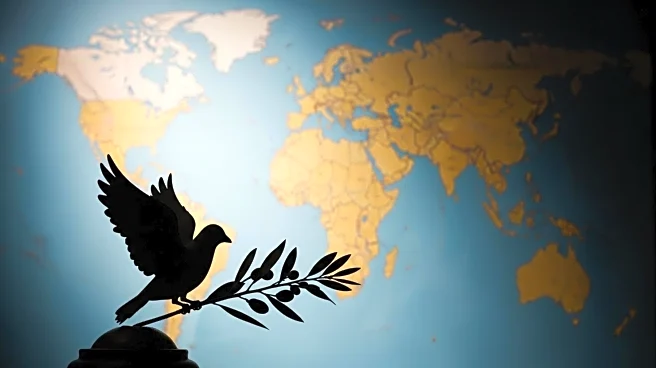What's Happening?
The United Nations Security Council is set to vote on a resolution calling for a ceasefire and increased humanitarian access to Gaza. This comes after nearly two years of conflict in the region, with the UN declaring a famine. The resolution demands an immediate, unconditional ceasefire and the release of hostages. Despite previous U.S. vetoes, the resolution is supported by a majority of council members. The U.S. has consistently rejected similar resolutions, backing its ally Israel. The vote reflects growing frustration among council members over the inability to pressure Israel to alleviate the suffering in Gaza.
Why It's Important?
The vote is significant as it highlights the international community's increasing impatience with the U.S.'s stance on the Gaza conflict. The resolution, if passed, could lead to increased humanitarian aid and potentially ease tensions in the region. However, the U.S.'s veto power remains a critical obstacle. The situation underscores the geopolitical complexities of the Israeli-Palestinian conflict and the challenges faced by international bodies in mediating peace.
What's Next?
The outcome of the vote will be central to discussions at the upcoming UN summit in New York. If the resolution is vetoed, it may lead to further diplomatic efforts to address the humanitarian crisis in Gaza. The international community may continue to seek alternative avenues to pressure Israel and support Palestinian civilians.
Beyond the Headlines
The ongoing conflict in Gaza raises ethical and legal questions about the role of international bodies in conflict resolution. The UN's ability to enforce resolutions and the implications of repeated vetoes by powerful nations like the U.S. are critical issues. The situation may prompt discussions on reforming the Security Council's decision-making processes.









